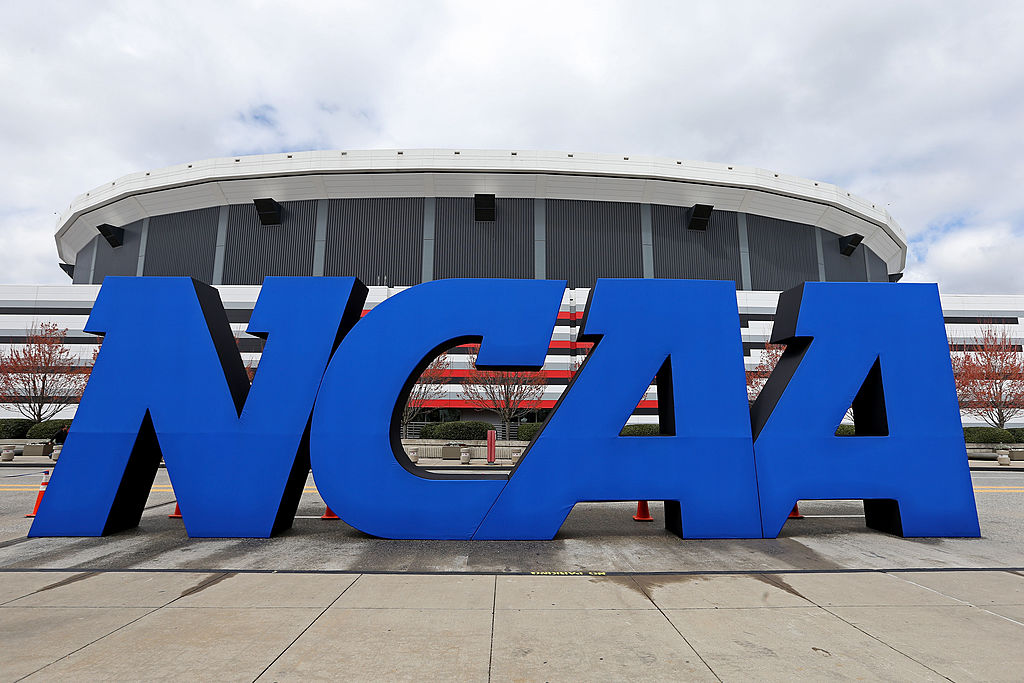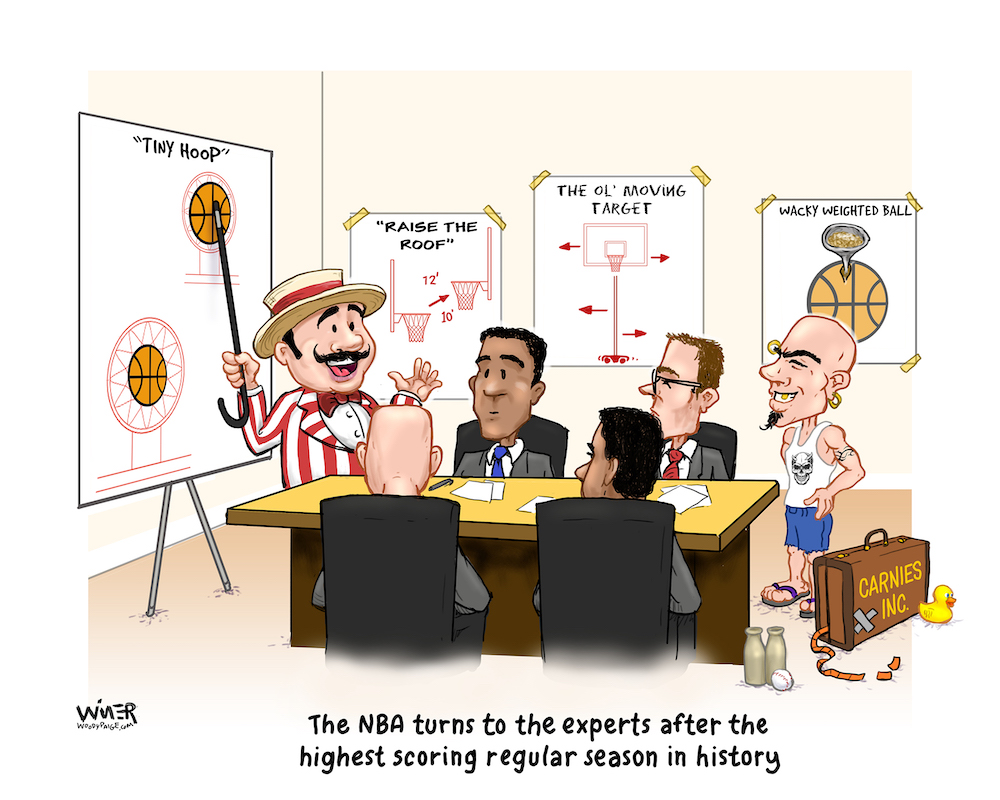A sage soul once offered me savvy advice.
Don’t defend the indefensible.
With the opening of the 2019-20 National Basketball Association regular season approaching, I’m going to do it anyway.
NBA officiating is the most-pummeled punching bag in sports, perhaps beyond the one in Canelo Alvarez’s training gym.
I’m here to tell you: NBA officiating is not that bad.
Stop laughing. I’m serious. It really isn’t.
No, I’ll go farther than that.
Given the realities, NBA officiating is pretty good.
The degree of difficulty of officiating an NBA game now is staggering. The NBA in general has the highest level of professional sports athletic talent in the world, and that has been enhanced by the internationalization of the talent pool.
The game originally was played by men mostly standing around on each possession and shooting at a peach basket. James Naismith’s 1892 rules, calling the game basket ball, were both vague and short. There have been many additions and modifications, of course, at the various levels, but the basics haven’t changed that much.
Since the founding and evolution of the NBA, the talent, skill, movement and inevitable physical contact have increased exponentially. Yet the court has remained the same size since the early days. The hoop remains at 10 feet. The game arguably has outgrown both. Significantly, hand checking on the perimeter was outlawed in 2004, opening up the floor, and that added to the challenges of NBA officiating.
Now, refereeing virtually any basketball game is difficult. Calling an NBA game is damn hard. The critics often act as if it’s easy.
The discretionary judgment required in this era is monumental. Referees are not calling the fouls. They are deciding which fouls to call. Only football officiating comes close to that.
Adding to the challenge is that fact that it’s so fashionable and clichéd to criticize NBA officiating.
Critiques mostly are made by fans, coaches, players and broadcasters who have axes to grind. For broadcasters, making the 48 minutes a running commentary on the NBA officiating, with the benefit of replay, is a lot easier than offering perceptive play-by-play and analysis.
At any given moment in an NBA game, one team’s broadcasters are portraying contact at one end as axe murder, while the other team’s broadcasters are calling it a mere brush that shouldn’t be ruled a foul.
Then, when the ball goes to the other end of the floor, the perspectives change 180 degrees.
Plus, roughly one-third of NBA players are thespians who act as if they never have committed a foul and are fouled every time they’re touched.
NBA coaches are lobbyists, “working” the officials in what they claim is the quest for “fairness.” They know the gray areas are immense. NBA officiating is about judgment and discretion more than “right” or “wrong.” I’ve always felt the most effective lobbyists are those who pick their spots rather than are constant whiners.
Referees are human. They are tempted to tune out the relentless whiners. They are prone to reacting to the more selective with, “Geez, maybe I blew that one,” or, “I guess I owe ‘em one.”
But with lobbying and complaining such an accepted part of the game and even strategy, it encourages those who want to make NBA officiating responsible for climate change, frozen pipes, donut spare tires, and potholes.
Those who blindly equate fairness with both teams going to the foul line the same number of times too often overlook that standing around on the perimeter and settling for jumpers, while the other team takes the ball to the hoop, produces “unfair” numbers. But you hear that all the time, especially when those involved are trying to advance a case that the road team got “homered.”
I’ve covered the NBA, both as a beat writer and columnist. I’ve worked many NBA Finals, including the 1984 Celtics-Lakers (Bird vs. Magic) series I’ve considered one of my career highlights; and I was at courtside – when writers sat at courtside – and a few feet away from Michael Jordan when he shrugged after hitting another 3 in his 35-point first half against the Portland Trail Blazers in Game 1 in 1992.
So I’ve seen this up close, both before and after the league added a third referee in 1988. I caught the tail end of when referees were personalities and recognizable parts of the show. Jake O’Donnell primarily comes to mind. And …
Wait. Methinks I doth protest too much. I really shouldn’t need to establish that I didn’t just discover the NBA to offer this view.
So let me say this again, without apology.
NBA officiating is pretty good.
The major catch, of course, is the sliding standards of justice.
Once Michael Jordan became Michael Jordan, it seemed he could drive from suburban Lake Forest to the hoop without putting the ball on the floor and not be called for traveling.
You know that, I know that, everyone knew that.
And that’s only the most glaring example of how the game works, including today with LeBron James, Kevin Durant, Stephen Curry, Russell Westbrook, James Harden or Damian Lillard . . . and more.
Generally, the stars get the star calls. (And I will not defend the Harden Flopping Phenomenon.) But in a league that prioritizes and promotes the stars more than any other, it’s impossible to criticize the referees for acting as if they got the memos.
Plus, some officials let personal feuds affect their judgment. That’s horrendous. Conceded.
The most challenging discretionary call, of course, comes after the fourth timeout in the final two minutes and the teams finally are playing out the final seconds.
That’s when all should know.
In the final seconds: No blood, no foul.
And no complaining about the officiating.
Because … one more time … it’s really pretty good.
About Terry: Terry Frei is the author of seven books. His novels are Olympic Affair and The Witch’s Season, and among his five non-fiction works are Horns, Hogs, and Nixon Coming, Third Down and a War to Go, and ’77: Denver, the Broncos, and a Coming of Age. Information is available on his web site, terryfrei.com. His woodypaige.com archive can be found here.
















